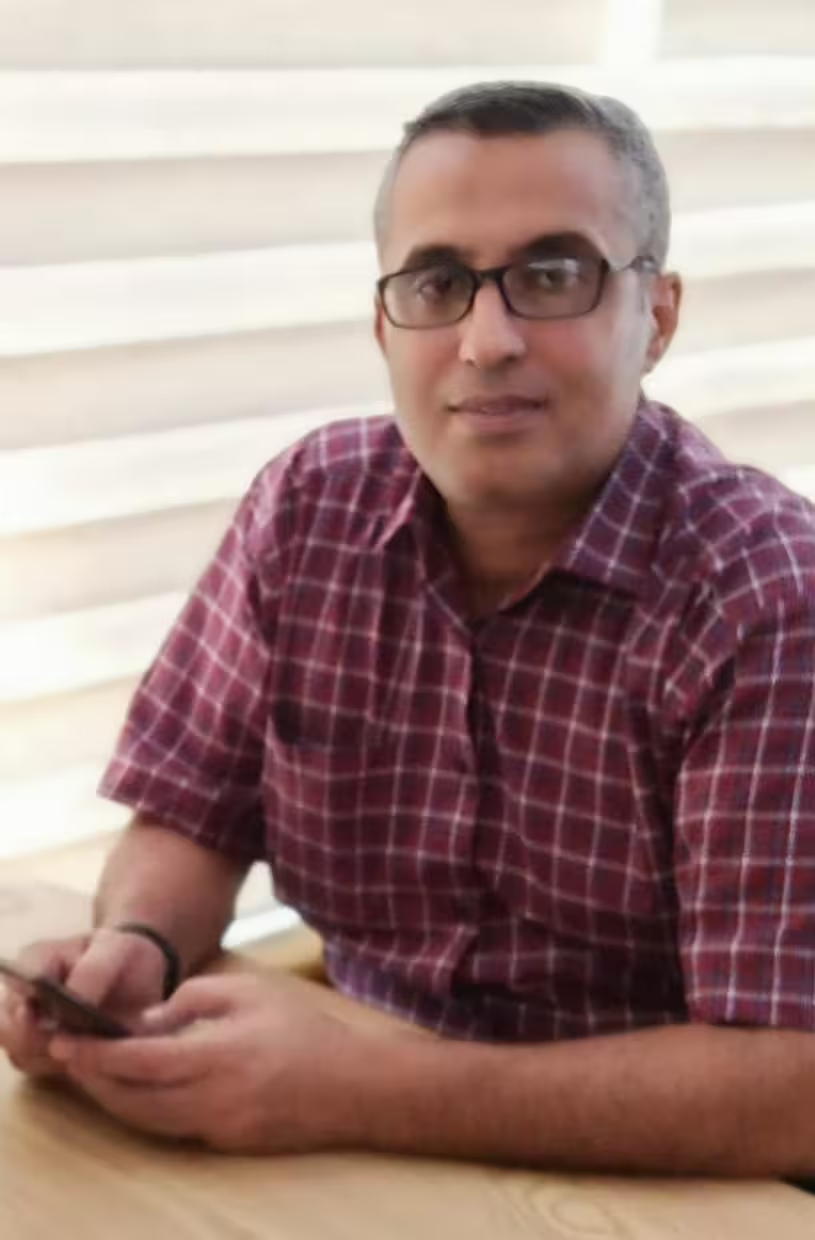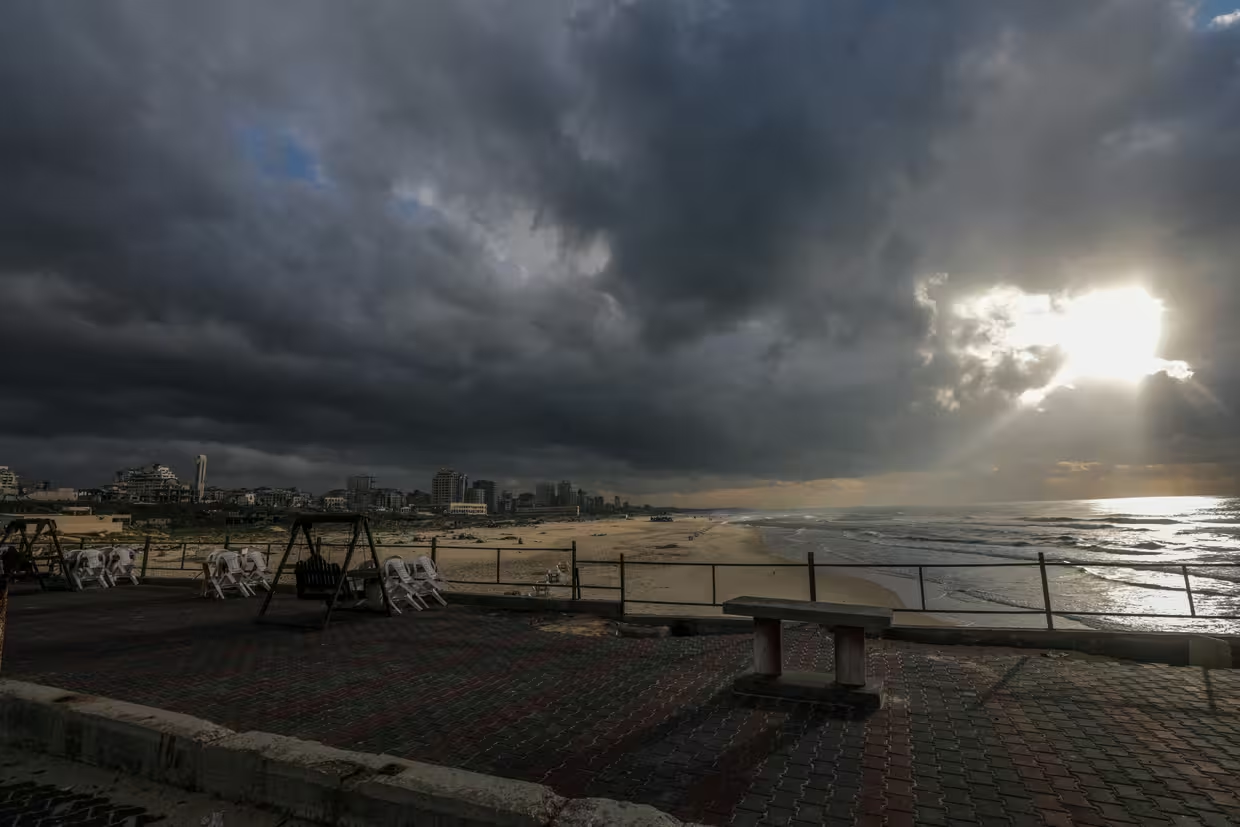Psychologist in Gaza City
Matt Oxman
- Matt Oxman
Journalist
Akram Salama describes his clinical work as he tries to flee the Israeli invasion.
As of writing, Israel is invading Gaza City, where psychologist Akram Salama lives and works. Salama is trying to flee, but says it is difficult because he has no car and little money.
Journal of the Norwegian Psychological Association has interviewed Salama about his work as a psychologist in Gaza, before and after 7 October 2023.
The October issue of the journal features an article about clinical work at a field hospital during the Gaza war.
The interview with Salama gives a broader context to that article, which is about experiences using cognitive behavioural therapy to treat a seriously war-injured patient.
Given the volatile situation in Gaza, Journal of the Norwegian Psychological Association has decided to publish the interview with Salama online only and ahead of the article.
Due to limited access to power and internet in Gaza, the interview had to be conducted in writing via a messaging app rather than by phone or voice message as originally planned.
– It is an honour to highlight the suffering
Salama is 49 years old and has a master ‘s degree in community mental health from Al-Quds University in Palestine.

RESILIENCE: Psychologist Akram Salama is trying to flee Gaza City. Salama says it is the Palestinian people’s resilience that keeps them going.
Photo: Private
Previously, he has worked at government hospitals. Now he works for a non-governmental organisation that gives support to individuals with war trauma in Gaza.
– Do you work with other psychologists?
– Yes.
– What other health professions do you work with?
– Social workers, psychiatrists and general practitioners, especially in cases that require interdisciplinary care.
– How do you work together?
– Meetings, referrals, courses and supervision.
– How do you support each other?
– We have regular debriefing sessions to process difficult cases and offer each other emotional support.
– Do you have networks or communities of psychologists?
– Yes, we have informal networks and some associations. Due to the ongoing crisis, communication these days is mostly online or local.
– What is it like working with psychologists and other health professionals from other countries?
– Enriching. We share knowledge about different treatment models and cultural perspectives. However, because of the blockade, collaboration is often virtual, which has its limitations.
– What did your practice involve before 7 October 2023?
– I had a fairly stable schedule. I offered therapy, group counselling and community outreach. Most of the work was related to chronic trauma, anxiety and depression.
– How has your practice changed since 7 October?
– It is more emergency-based. We have offered psychological first aid, crisis therapy and basic emotional support. The workload has increased dramatically, and structured sessions have become rare.
– What patient groups and conditions do you work with?
– We mostly work with trauma survivors, especially children and women. The conditions include PTSD, anxiety, depression and grief.
– How do you work with children and youth?
– We use play therapy, art therapy and trauma-informed approaches to help the children process fear, displacement and loss.
– Do the patients seek help from you? And what type of help are they seeking?
– Yes, many patients take the initiative. Most of them want help with trauma symptoms, sleep problems, panic attacks and overwhelming fear.
– How do you care for your own mental health?
– I receive support from colleagues, and use journaling and use mindfulness techniques. Also, I stay in touch with family and friends. Sometimes, I ask a colleague for help with emotional processing. Peer supervision is essential for self-care.
– What types of support would you like from psychologists in other countries?
– We appreciate solidarity, professional collaboration, sharing resources and possibilities for training and supervision, especially for treating trauma in conflict zones.
– What is the overall goal for your practice?
– To promote psychological resilience, reduce trauma symptoms and support emotional recovery, especially amongst children and vulnerable populations.
– What do you think is achievable in the current situation?
– Complete recovery is difficult. We try to provide coping strategies, emotional stabilisation and safe spaces for expression and support.
– What are your thoughts about the future of psychological practice in Gaza?
– Despite the circumstances, I believe there is an increase in awareness around mental health. There is an urgent need to invest in mental health infrastructure and train more professionals. The future is uncertain, but our resilience keeps us going.
– Thank you for participating in this interview under such extreme circumstances.
– It is an honour to highlight the suffering of the Palestinian people and patients being subjected to genocide.

